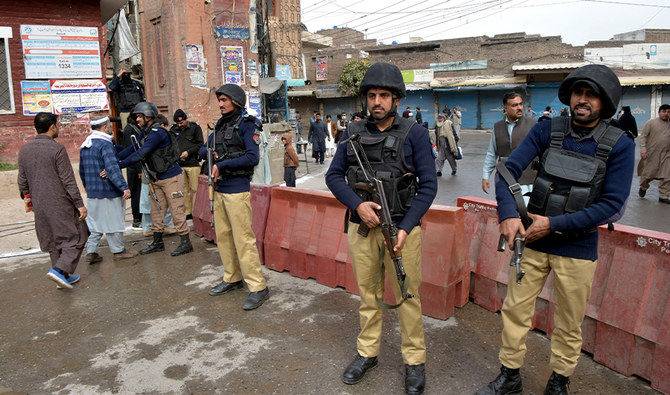ISLAMABAD: The provincial administration of Khyber Pakhtunkhwa (KP) said on Wednesday it would thoroughly investigate a death threat received by its minister for science and technology who was purportedly asked by a proscribed militant network in a letter to pay Rs8 million or prepare to die.
Minister Atif Khan acknowledged the development while speaking to the media earlier in the day, adding he had shared the letter with the country’s security agencies to take necessary action.
The extortion letter appeared to be written by Tehreek-e-Taliban Pakistan (TTP), a conglomerate of militant groups which have remained involved in similar activities in the past, though its spokesperson denied it was behind the letter.
The militant network also issued a statement, saying it would “punish the culprits” who threatened the minister.
“While the TTP has disowned the group behind the letter, the provincial government will probe the development to see where it came from before taking action against those behind it,” the KP administration’s spokesperson, Barrister Muhammad Ali Saif, told Arab News on Wednesday evening.
He added that the police would ensure “foolproof security for all ministers.”
The letter told the minister that he was “aware of who we are and what we want.”
“You are on the list of TTP Mardan chapter and it is your turn now,” it added. “To get yourself out of the list, you need to fulfill our demand. So, you need to pay us Rs8 million to exit the list or you will lose your life. We want an answer within three days.”
In recent weeks, there have been widespread reports that militants have returned to Pakistan’s Swat valley amid stalled peace talks between the government and top TTP leaders in Afghanistan.
Last week, thousands of people came out in Swat to register their protest after unidentified gunmen on a motorbike targeted a school van, killing its driver and injuring a student.
The TTP also denied involvement in that incident, though the attack brought back the memories of the 2012 attack on Malala Yousafzai who defied the militant network by advocating the right to girls’ education.
Adnan Bitani, a senior journalist in the province who mostly deals with security issues, noted the TTP mainly had its presence in the tribal areas in the past, though the group had seemingly spread its tentacles in other places of the province more recently.
“There is uncertainty in parts of KP because well-off people are confronted with the constant threat of extortion,” he continued. “While the TTP is trying to distance itself from such threats, the province remains in the grip of insecurity.”
Bitani said it was possible for some third force to benefit from the situation since the provincial and federal administrations had their political differences and were not paying adequate attention to the security of the province.
Last month, the TTP claimed a bomb attack in KP in which eight people, including an influential anti-Taliban leader, was killed.
It was the first major bombing in the province after more than a decade.















